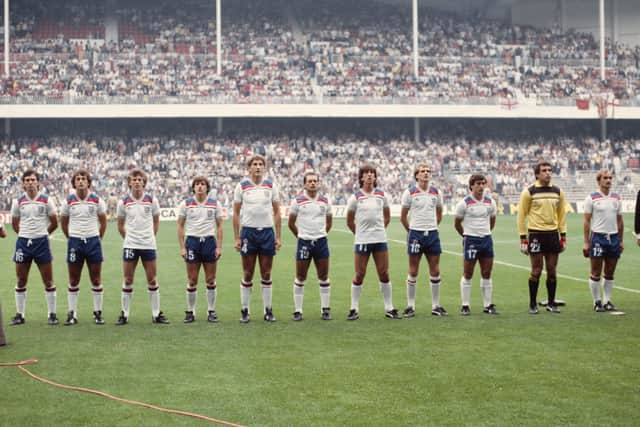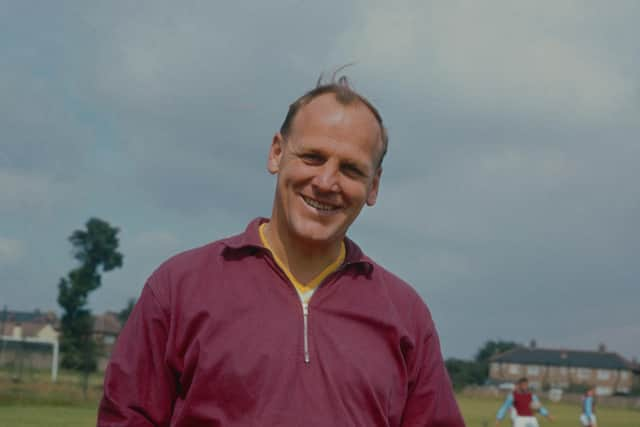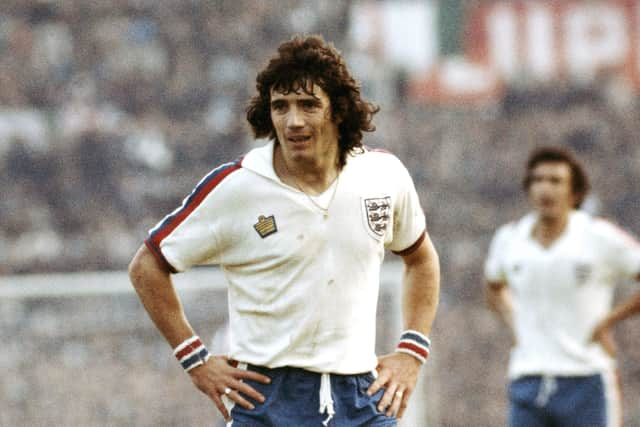England’s World Cup exit in Spain 1982 harsh on Ron Greenwood’s unbeaten and ‘forgotten’ side
Even if it remains the only Three Lions side to go unbeaten at the global tournament since victory in 1966.
Forty years ago this month – amid the backdrop of the Falklands War – England headed to Spain for World Cup ‘82.
Advertisement
Hide AdAdvertisement
Hide AdIt was a tournament which started with a welcome return from ‘out of the wilderness’ as The Times put it and hope. Yet it still ended in frustration, disappointment and a nagging sense of ‘if only.’


Led by a one-time Bradford (Park Avenue) player in Ron Greenwood – aka ‘Ron’s 22’ in the words of the classic World Cup anthem This Time (We’ll Get It Right) – England flew out to the port city of Bilbao from Luton on June 10, 1982.
It was five days before the end of hostilities in the South Atlantic and throughout the tournament, many Spaniards with natural leanings towards Argentina were not exactly full of bonhomie towards those visitors who followed England from Bilbao to Madrid.
England’s squad contained no players at clubs in the White Rose county. But it did contain two Yorkshiremen, who were both from Doncaster.
Advertisement
Hide AdAdvertisement
Hide AdOne was one of the most instantly recognisable players across the globe at the time in Kevin Keegan, who hailed from the pit village of Armthorpe. The other was Arsenal winger Graham Rix, from the rural village of Moss near Askern.


A day after the end of the Falklands conflict, England took to the field against France at Bilbao’s San Mames stadium.
World Cup qualification may have only arrived courtesy of a 0-0 draw between Switzerland and Romania – when a win for either would have seen them go through – but optimism was abound given a side containing the likes of Peter Shilton, Bryan Robson, Ray Wilkins and Paul Mariner.
The presence of Trevor Brooking and Keegan in the party, even though both were recovering from injury, added to a feeling of general confidence. More of those two later.
Advertisement
Hide AdAdvertisement
Hide AdIn blistering heat, England took the lead with one of the quickest goals in World Cup history from Robson after just 27 seconds after Terry Butcher had flicked on Steve Coppell’s quickly-taken throw.


A France side including the gifted midfield duo of Michel Platini and Alain Giresse, alongside the likes of Dominique Rocheteau and Maxime Bossis equalised through Gerard Soler, but England dominated the second half with Rix’s tactical switch to the left bearing fruit for Greenwood.
Robson headed in his second before Mariner sealed it with the Ipswich striker scoring for the fifth successive international, with France manager Michel Hidalgo having the good grace to admit that the better side won.
Another strong and professional display would follow against Czechoslovakia four days later in Bilbao on June 20.
Advertisement
Hide AdAdvertisement
Hide AdTrevor Francis rammed home the opener just after the hour mark after a mistake by the Czech keeper from Wilkins’s corner and an own goal soon after from Barmos sealed the win and qualification to the second phase. Yet it came at a price with Robson joining Keegan and Brooking in the treatment room.
Still, the mood afterwards from Greenwood was positive. “We came to the World Cup via the back door. Now we are halfway up the front steps,” he said afterwards.
Without Robson, England were less convincing against Kuwait in the final group game, which was lit up by a fine goal from Francis, with the main talking point transpiring when news came to light that Keegan had made a secret trip back to Germany for specialist treatment on his back injury in a desperate bid to get fit.
It was then England’s fortunes started to turn, despite the fact the only other side to top their group with maximum points were Brazil, whose sublime line-up of Zico, Socrates, Eder, Falcao et al were surely the greatest side never to win a World Cup alongside the Dutch team of 1974.
Advertisement
Hide AdAdvertisement
Hide AdA second group format saw England, despite winning their opening group, paired with West Germany and hosts Spain in a ‘group of death’.
Runners-up France faced Austria and Northern Ireland, by contrast. The format was dropped by FIFA after the tournament.
England now switched from the north to the centre of Spain after decamping to Madrid with their opener coming against West Germans, with the fortieth anniversary of that game arriving tomorrow.
In front of a crowd of 75,000 at the Santiago Bernabeu, it proved a turgid and cautious affair.
Advertisement
Hide AdAdvertisement
Hide AdThe sight of Robson back in harness for England was at least welcome and he went closest to scoring for Greenwood’s side with a header which was tipped over by Toni Schmacher.
Germany’s best chance saw a fierce strike from Karl-Heinz Rummenigge rattle the woodwork late on.
Jupp Derwall’s side went out and beat Spain 2-1 in the next match, meaning that England would have to beat the hosts by two clear goals to qualify for a place in the semi-finals.
It proved a taxing night in the heat against Jose Santamaria’s Spain on July 5, 1982.
Advertisement
Hide AdAdvertisement
Hide AdShilton was solidity personalised in England’s goal, but the game is best remembered for the gutted reaction of Keegan, on his knees, reflecting on missing a gilt-edged chance in the air after Brooking’s cross.
Both had been thrown into the fray on 63 minutes, but it was not to be as the game ended goalless. Brooking also spurned an excellent opportunity.
A typically honest Keegan offered no excuses afterwards about ring-rust or anything. “No excuses, I should have scored,” he reflected.
So, not for the first time, the West Germans progressed at the expense of England, in Greenwood’s last game in charge.
Advertisement
Hide AdAdvertisement
Hide AdThis despite England not losing a game, scoring six times and only conceding just once, with West Germany going onto take on France in an infamous semi-final in Seville.
The main ‘if only’s’ revolved not just around Keegan’s miss, but what would have been possible if he and Brooking had been available for the whole tournament.
Despite the disappointment, it was a month which put England back on the footballing map and in the headlines for the right reasons amid an era when hooliganism was rife.
Comment Guidelines
National World encourages reader discussion on our stories. User feedback, insights and back-and-forth exchanges add a rich layer of context to reporting. Please review our Community Guidelines before commenting.